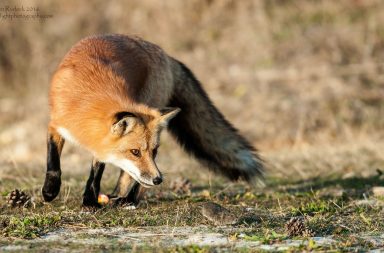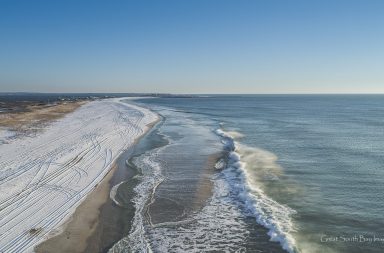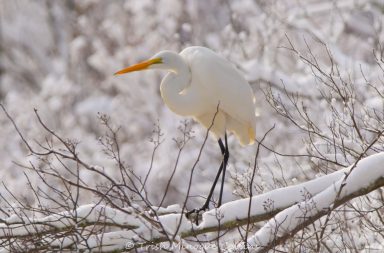The first weekend of June at Jones beach this year was beautiful. On Saturday, the afternoon sun was strong and the constant breeze refreshing. June brings some changes to the West End, as summer soon approaches. The pleasant sound of the crashing waves is accompanied by the persistent noise of terns, which are territorial and defensive. The terns, smaller than gulls, noisily fly about, often circling above humans, which they may consider to be intrusive. Their behavior makes them interesting to watch. You can often witness the terns’ courting ritual, as the males offer the female a fish before mating.
Besides the presence of the terns, the sectioned-off areas of piping plover areas become larger. The furthest West beach area is now closed off to beach vehicles, due to the recent arrival of newborn plovers, which are endangered and federally protected. The mature piping plovers themselves are diminutive in size, and their babies look like little cotton balls with legs, often difficult to spot. Piping plovers utilize the “broken wing” tactic in order to distract predators from their eggs or offspring. The objective is to feign a broken wing, so that the predator does not notice the eggs or offspring. This is a common sight. Even walking past a piping plover area in the vicinity of eggs, may entice the plover to show you its broken wing. Yet, this endangered species needs the assistance of human protection in order ease various risks to their eggs and offspring.
During my walk, I spotted a group of employees placing a netting over another area further to the east of the other netted areas. I asked the employees how they locate the eggs and how often they look for them. They introduced themselves to me as “piping plover stewards” and they routinely examine the West End for eggs. A netted cage will be placed over any new eggs to protect them from predators. Once the eggs are hatched, the area to the east will also be closed to any beach vehicles. As the piping plover stewards moved on to another area of the beach, I continued walking east and thought about the word “steward.” I thought about how wonderful it is that this endangered species has a trained group of stewards working hard to protect them. I spotted a bunch of sanderlings gathered close to the crashing waves. Their movements and presence were calming and refreshing. I thought some more about how we can all be stewards in some way, for some good and worthy cause, either officially or unofficially. It’s rewarding and fulfilling to care about something bigger than ourselves. By helping others, we ultimately help ourselves, too.
One other change that June has brought to the West End was the presence of plastic garbage strewn along the shoreline. More people and activity has increased the amount of litter. Much of this litter gets swept into the ocean during high tide. The next morning, I returned to the shore with my son, garbage bags, and a desire to do a little good. We collected as much plastic litter as we could carry, took time to observe all the beautiful and interesting sights and sounds as we walked along the shore, and actually had some fun doing it. Every little bit of stewardship, official or unofficial, helps. Some of the visitors on the West End looked at us curiously that morning. Maybe that curiosity will turn into inspiration. I look forward to seeing more of those adorable little cotton balls on legs as summer approaches. I’ll remember the efforts of the piping plover stewards, and the amazing way that humans can care for the most vulnerable among us.




More images on page 2




